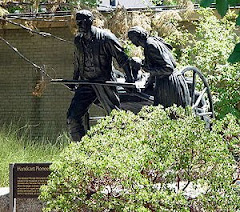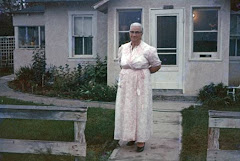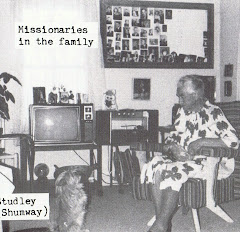 |
| Chief Washakie Northern Shoshone |
The Holy Bible and The Book of Mormon (Another Testament of Jesus Christ)
 |
| The Stick of Judah and the Stick of Joseph |
The world's oldest multiple-page book - in the lost Etruscan language - has gone on display in Bulgaria's National History Museum in Sofia. And something about that book has particular interest for Latter-day Saints. As is evident from the photograph, this book was created on metal plates that are bound together with metal rings similar to the original source documents that became the Book of Mormon.
The book of Mormon tells of the people who came to the America's in 600 B.C. The Book of Mormon was translated from plates made of gold, held together by three metal rings. The original plates were written in reformed Egyptian characters by prophets living in the Western Hemisphere between 600 BC and 421 AD.
 |
| Found in Hebrew Cave |
 |
| Los Lunas Stone - New Mexico |
Thirty- five miles south of Albuquerque, New Mexico is what is known as the Los Lunas Stone. An 80-ton boulder engraved with the Ten Commandments in Hebrew centuries ago. The Hebrew form was used for an approximate one thousand-year period, ending about 500 BC. Harvard scholar, Robert Pfeiffer, and expert in Semitic languages, concluded that the mysterious inscription was written in a form of Paleo-Hebrew and paraphrased the Ten Commandments. "I am Yahweh thy God who brought thee out of the land. There shall not be unto them other gods before Me." Historian Steven M. Collins points out that the "Las Lunas Stone" inscription in archaic Hebrew was written in the Hebew letters of the style of the Moabite Stone, dated to about 1,000 B.C. Interestingly, beside the boulder is a Tamarisk, a tree species native to the Middle East and supposedly the type of tree planted by Abraham in Beersheba when he called upon the name of the Lord.
In 1885, missionaries went to the Wind River Shoshone Indians carrying a Book of Mormon and a letter of friendship from Brigham Young. Chief Washakie accepted the gifts, telling his subchiefs that their "Father above the clouds" told Brigham Young to send the missionaries. This was the beginning of a long friendship between Washakie and the Latter-day Saints.
In 1885, missionaries went to the Wind River Shoshone Indians carrying a Book of Mormon and a letter of friendship from Brigham Young. Chief Washakie accepted the gifts, telling his subchiefs that their "Father above the clouds" told Brigham Young to send the missionaries. This was the beginning of a long friendship between Washakie and the Latter-day Saints.
 |
| Chief Washakie with Council 1883-1885 |
A great-great grandson of Chief Washakie, told my brother Rick the following (it is paraphrased according to my memory). When the Book of Mormon was first introduced to Chief Washakie , he did not believe it. The Book was passed around the circle and the third time the Book of Mormon passed around the tipi, and hearing what it contained, Chief Washakie declared that it was true. He told those present that they were once a great nation. He recognized the history of his people as contained in the Book of Mormon and believed it to be true.
Many artifacts have been found in America that were written in an ancient Hebrew text. One was stored in the Smithsonian museum, and had been thought to be an ancient American Indian writing because it had been found in "Indian country". However, when helping move some boxes, this item was "rediscovered" by a gentleman fluent in ancient languages, and discovered the artifact had been mounted upside down. It was not ancient American Indian, but rather, Ancient Hebrew.
We n' de ya ho, We n' de ya ho,
We n' de ya, We n' de ya Ho ho ho ho,
He ya ho, He ya ho, Ya ya ya
Translation - We n' de ya ho
Freely translated: "A we n'" (I am), "de" (of), "Yauh" --the-- (Great Spirit), "Ho" (it is so).
Written as: A we n' de Yauh ho (I am of the Great Spirit, Ho!).
This language stems from very ancient Cherokee
Arranged by Rita Coolidge and Robbie Robertson.
Translation by David Michael Wolfe who is an Eastern Virginia Cherokee and a cultural historian. Thanks to Maurizio Orlando for providing the translation.
















